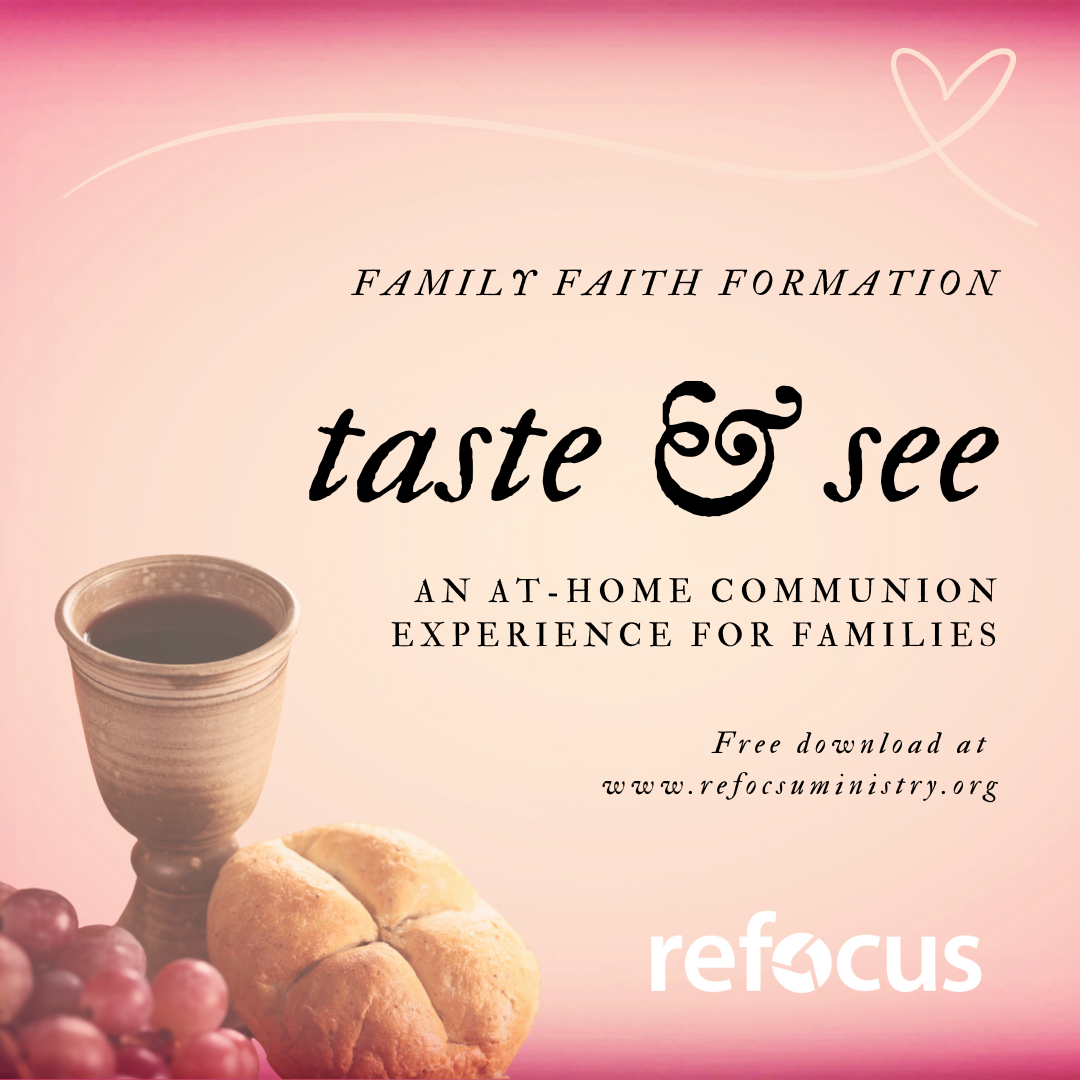One of my favorite memories of my niece was from years ago when we were on a family vacation at the beach. She was about three years old and discovering the joys of the pool for the first time. We were all in the water, calling out an invitation for her to join us, when she turned to us and yelled, “Hold on a minute! I’m acclimating!!”
We all started laughing! She absolutely used the word in the right way but hearing it from a three year old was just too much. Kids do that a lot! They use really big words in accurate ways or, more frequently, really big words in inaccurate ways, and it’s hilarious.
But, let’s be honest, we adults do it too. Especially with buzz words. These words show up in social media posts, newscasts, and daily conversations, but are often vague and act as a catch all, making it very easy for us to say the word with a certain thing in mind and have the person listening take a very different meaning from what we’ve said.
The solution to this “problem” is simple. We just need to clearly define the words we use. But that takes time and it takes intentionality, both things that are not often used in our busy lives.

In my line of work, I am aware of two phrases that get used a lot but need some defining: age segregation and generational gap. Most have heard of the two phrases, but many have not really taken time to consider what they meant.
For the sake of clarity, let’s some time and intentionality and look at these two phrases.
Age Segregation
Age segregation is defined as the separation of people based on their ages. This can be intentional liked nursing homes and graded classrooms or unintentional like social media and clothing trends.
Intentional age segregation is a relatively new phenomenon. Graded classrooms didn’t really get their start until the last 1800s/early 1900s and didn’t spread to the whole country for decades after that.
Similarly, before the 19th century, no age restricted institutions designed for long term care existed (Source). Nursing homes and retirement communities gained steam in 1954 when the federal government created a grant that would fund such institutions and in the 1960s when Medicare and Medicaid began and provided payment for those services (Source).
Generational Gap
Generational gap is the perceived difference of opinions between one generation and another regarding beliefs, politics, or values. The most important word here is “perceived.” That means that we think there is a difference of opinion but we don’t know that for sure. That perception fuels a lot of our interactions and the way we approach issues ranging from political agendas to our preferred cell phone plan.
Why are these things important to the church?
Well, just like with society, age segregation is a relatively new thing for the church as well. You can trace the rise of separating the church community based on age back to about the 1950s when we see the start of youth groups. Over time, the church became more and more focused on age specific ministries and creating both classes and services aimed at meeting the developmental and felt needs of different generations.
It’s not unusual for generations within a church to spend little if any time with one another.
As a result, just like in society, there is a perception within the church that there are significant differences of opinion on everything from sermon topics to worship styles. The generational gap within churches can often be seen by taking a look at who attends the “traditional” service and who attends the “contemporary” one.
Since the separation of ages and the perception of differences mirrors that of our society, it’s easy for us to think “that’s just the way it is.” But it’s important to note that it wasn’t that way for centuries. And equally as important to note that the impact on the church is a substantial one. Why?
Because our faith is primarily passed from one generation to another.
That means in order for “one generation to praise Your works to another” the generations must interact; they must be in the same geographical space, speaking to each other and building relationships with one another if generational discipleship is to occur (Ps. 145:4).
Studies bear this out.
One of the first longitudinal studies done on youth in regard to church attendance post high school once the Millennial decline became apparent was done by Fuller Youth Institute in 2006-2010 and they released their findings here. Their research found was that while most U.S. churches focus on building strong youth groups, teenagers also need to build relationships with adults of all ages.
Further research showed that while there was no “silver bullet” churches that encouraged intergenerational connections and worship and youth that felt involved and connected to the larger church had a much greater chance of remaining in church post high school. (The findings can be found here).
In 2016, Fuller Youth Institute released a new study called “Growing Young” that looked at churches that were continuing to “hold onto” their young people and even grow in the Millennial sector of their congregation. One of the key reasons they found for that was “Warm intergenerational relationships” at that “involving young people in every ministry has allowed these churches to thrive with authenticity and intergenerational relationships” (Source)
In other words, we need each other.
When phrases like “age segregation” and “generational gap” can be applied to our community of faith, we need to take a step back and consider the ramifications on sustainability and disciple-making and take serious consideration if the benefits outweigh the costs.
We need to take the time and be intentional not only about defining our “buzz words” but also determining the effect they are having on us, on the generations that precede ours and for the generations that are to come.
ReFocus in 2025
Here’s what to expect!

- 1 New Family Faith Formation curriculums – Our final block for our Family Faith Formation curriculum, Gospel Tools will come out in Spring 2025. These family-focused curriculum blocks help parents/caregivers gain the tools they need to develop discipleship-at-home practices in a community setting. The family learns together with other families how to interact with each other around topics of faith, formation, and fun. You can see our current offerings HERE.
- Quarterly Free Resources – That’s right! FREE! Each quarter we will offer a free resource to help your families at church and at home to actively engage with Scripture and each other. For our current FREE Resources, check out our website!
- ReFocus Roundtables – ReFocus Roundtables are online discussions around relevant topics in children, youth and family ministries focused on finding ways and spaces to connect generations for discipleship. Each Roundtable has it’s own unique topic such as Including All Ages in Sunday Worship and Developmentally Appropriate Church. We will be hosting 1 each quarter so keep your eyes ope to see how and when you can join us!
- Family VBS Adaptor Curriculum (Make ANY VBS a Family VBS) and trainings for your whole team! – We are incredibly excited about this! We’ve had so many people reach out to us around the topic of creating and running a Family VBS, we’ve decided to put together a resource to help you take any VBS curriculum and turn it into a Family VBS. In addition to the Curriculum Adaptor, we will offer trainings for your team and one-on-one coaching as needed. Details to come!
To get added to our mailing list and receive first dibs on all our offerings, drop an emoji below and send us your email address via messenger or to christina@refocusministry.org!
Free Valentine’s Discipleship Resources

Celebrate the Love of Christ this February with a Family Faith Formation at-home communion experience.
This celebration is easily adaptable to your denominational tradition and offers a space for families to reflect on the greatest Love of all – Jesus.
You can find all of our current available resources at the links below
About the Author

Christina Embree is the founder and director of ReFocus Ministry. She holds a masters in ministry focused on Children, Youth, and Family Ministry and a doctorate in spiritual formation with a focus on age segregation and intergenerational ministry. In addition to coaching churches of multiple denominations and traditions all around the globe, Christina serves as the Minister of Generational Discipleship for the Great Lakes Conference of the Brethren in Christ and as a pastor at Plowshares Brethren in Christ in Lexington, Kentucky. She is widely recognized as a speaker and author in the areas of generational discipleship, intergenerational ministry, and family ministry. As the mother of three children, she is familiar with the challenges of faith at home and pastoral ministry. She along with her husband Luke share a love for the church, their community, and the global work of peace and restoration through Jesus.
Interested in having Christina visit your church, speak at your conference, or coach your team? Christina speaks on a wide range of topics related to children, youth, and family ministry with a unique focus on connecting generations for discipleship within your church. Her personalized approach allows you to pinpoint the needs of your community and gain the insight that you are looking for. Whether this is a volunteer team training and pastoral staff meeting or a ministerial conference, her experience and knowledge will help you determine the next step forward in creating lifelong disciples.
Learn more at https://refocusministry.org/speaking-coaching/ and fill our our Speaker Interest Form at https://forms.gle/5Xzs5BE8pfyU2top9 to receive a personalized response.

6 Comments